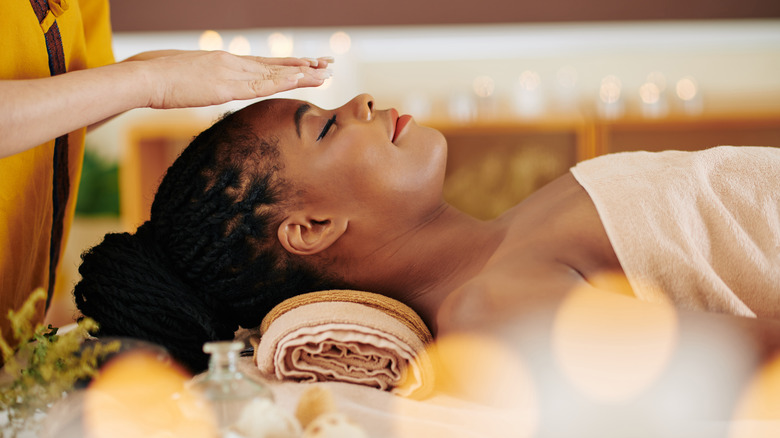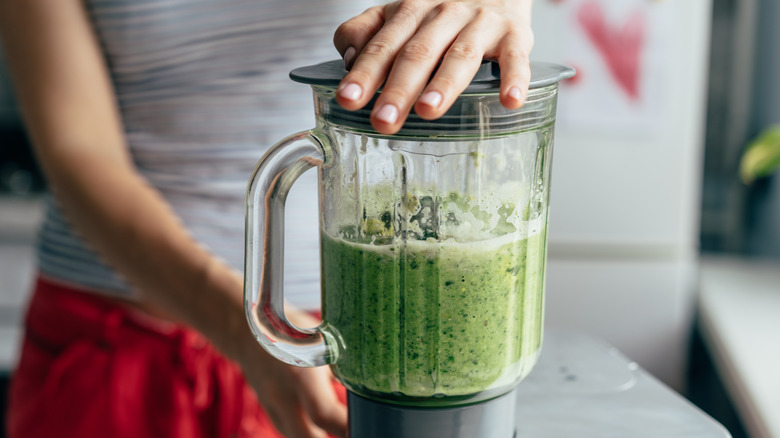What You Need To Know About The Panchakarma Cleanse
For years, people have tried different cleanses and detoxes with the goal of improving skin health, boosting energy, or losing weight. According to Everyday Health, the terms "cleanse" and "detox" are used interchangeably and fall into one of the following major categories: liquid-only cleanses, detoxifying cleanses that boost liver and kidney function, or colon cleanses that help eliminate waste in the digestive system. Originally, detoxing was a practice recommended by naturopaths and holistic healers to help with issues such as alcohol poisoning or organ failure. Today, cleansing and detoxing have become much more mainstream.
As celebrities rave about different protocols they're trying, more people are ready and willing to give a 10-day cleanse or 21-day detox a shot. One that's gaining popularity is the Panchakarma cleanse and, according to Bustle, superstars Kourtney Kardashian and Aaron Rodgers have both tried it. Here's what we've learned about the Ayurvedic practice and how it can benefit you.
How panchakarma works
Panchakarma is a Sanskrit term for the Ayurvedic (traditional Hindu system of medicine) process of purifying the body (per Yogapedia). The word is derived from the root words, pancha, meaning "five," and karma, meaning "action," which refers here to the five treatments that make up this purification.
According to Bustle, panchakarma is a 21-day cleanse that's rooted in developing a holistic lifestyle — not just a holistic diet. Yoga practitioner Elizabeth Marglin told Yoga Journal that, for her, panchakarma boiled down to one question: "How do my choices augment or interfere with my well-being?" While it may seem Zen, Medha Garud, Ayurveda program director at the Art of Living Retreat Center in Boone, North Carolina, told Yoga Journal, "For the very frail or debilitated, panchakarma is simply too intense."
Panchakarma consists of three phases, each seven days long. The first two, Bustle says, should be overseen by a professional. Panchakarma starts with a pre-cleanse, during which the practitioner uses oils to loosen up waste in preparation for elimination. The second phase consists of eating foods that aid in digestion, drinking room temperature water, and using an enema to flush out toxins. During this phase, it's recommended that you abstain from smoking, drinking, and having sex. The last phase is the post-cleanse when you rebuild the body by enjoying nourishing, semi-solid foods along with Ayurvedic herbs and spices.
A 2009 study published in Scientific World Journal showed that panchakarma is beneficial for adhering to positive lifestyle practices, improving the ability to make healthy lifestyle changes, and decreasing anxiety.


